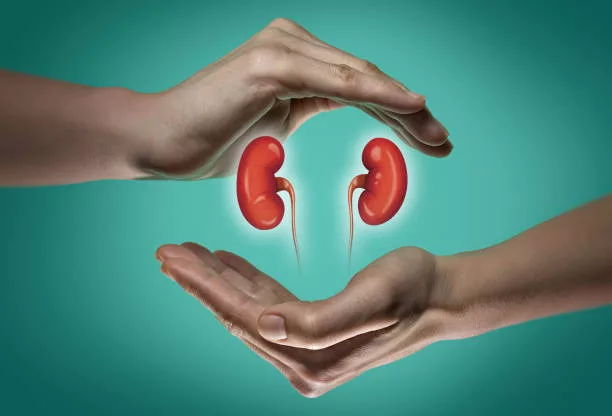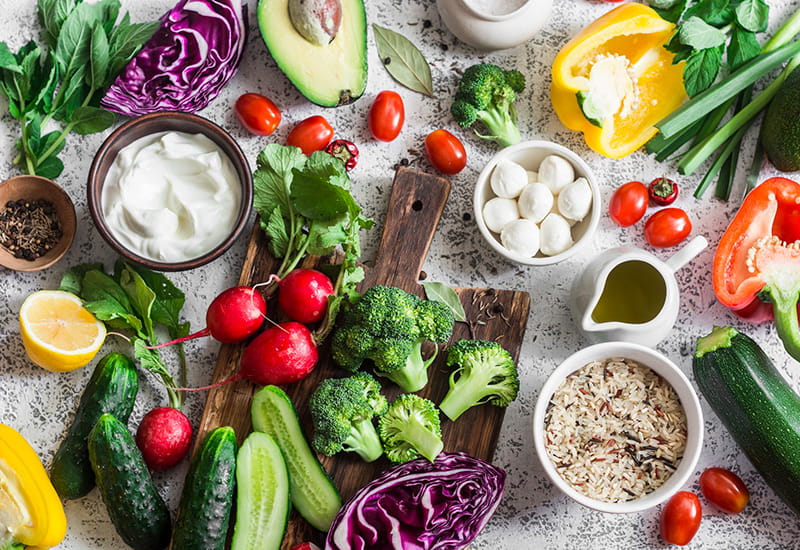6 Ways to Keep Your Kidneys Healthy
Preserving the health of your kidneys is of utmost importance, since many medical conditions, such as high blood pressure and diabetes, can damage them over time. Adopting healthy practices such as dieting and regular physical activity to achieve weight control can also help lower blood pressure.
Keep kidneys healthy by following these 6 Tips to Keep Your Kidneys Healthy:
1. Exercise Regularly
Kidneys play an essential role in our overall wellbeing, filtering waste from our bodies while maintaining proper fluid and electrolyte balance, as well as helping regulate blood pressure when someone becomes ill. For optimal kidney health it is vital to eat healthily, exercise regularly, and make lifestyle adjustments to support kidney health.
Protein can make kidneys work harder, so consume moderation when it comes to meat and fish (the National Institute for Diabetes and Digestive Diseases recommends 2-3 ounces each week). When cooking favorite dishes with lower sodium levels in mind (salt increases risk of heart disease) consider substituting for salt with herbs and spices as salt substitutes or even using an herbal blend instead of sodium-laden products such as frozen.

Fruits and vegetables contain antioxidants, vitamins, and minerals in abundance; however, consumption should be limited to avoid potassium overload. Dark leafy greens like kale and spinach contain less potassium than other vegetables; bell peppers also offer many health benefits while being relatively low in potassium content. Arugula offers another low-potassium option.
Salmon and tuna provide protein and omega-3 fatty acids, which may slow the progression of kidney disease. When choosing your fish species, steer clear of those high in mercury such as blue bobo, parrot sand bass or yellowedge as these could be detrimental.
2. Eat a Healthy Diet
These fist-sized organs located on either side of your rib cage play an essential role in keeping your body functioning at an optimum level, filtering waste products, excess water and other impurities out of your blood, helping the body absorb calcium for bone and muscle health, regulating blood pressure, salt and potassium levels as well as producing hormones. While kidney problems often stem from medical conditions like high blood pressure or diabetes, you can prevent kidney issues by adhering to a diet low in sugar, sodium and saturated fats while eating plenty of fresh fruits & veg as well as whole grains – keep track of what your kidneys can produce and produce hormones!
Keep your kidneys hydrated by drinking at least six to eight glasses of water daily, preferably drinks that are low in sodium such as tea, coffee or herbal infusions with lower-fat milk alternatives. Avoid fizzy drinks, sodas and sugary fruit juices instead in favor of plain water, tea, coffee or herbal infusions or lower-fat milk alternatives.
Eating colorful vegetables and fruits is vital for supporting the health of kidneys, as these foods contain vital vitamins and antioxidants that support optimal kidney functioning. But be mindful of certain vegetables high in oxalate that may increase your risk for kidney stones – for instance spinach, kale and collard greens should be avoided by those prone to them; and tomatoes contain high concentrations of lycopene that could cause headaches.
3. Drink Plenty of Water
The kidneys play an essential role in keeping our bodies clean, controlling blood pressure and maintaining salt balance, helping absorb calcium for bone health, producing hormones and producing other necessary substances such as hormone replacement therapy (HRT). They must remain well hydrated by drinking plenty of water throughout the day to stay functioning at their best!
An effective kidney diet consists of fruits and vegetables, whole grains and lean proteins like seafood, skinless poultry and eggs; incorperating regular exercise, and restricting sodium, sugar and fat intake. Eating well and exercising are keys to keeping kidneys working optimally – so be sure to consume balanced meals while exercising regularly!
Drinking plenty of water can help lower the risk of kidney stones, which are painful and can block urinary tracts. Water also plays an important role in helping manage high blood pressure and obesity – two conditions linked with kidney disease.

Regular medical checkups and avoidance of medications that could damage the kidneys are also key components to keeping them functioning optimally. Long-term use of nonsteroidal anti-inflammatory drugs (ibuprofen and naproxen) or prescription medicines like lithium can cause permanent kidney damage; regular screening for diabetes and high blood pressure as leading causes can also help protect kidney health – your doctor can suggest safe medication regimens that will benefit both conditions.
4. Avoid Over-the-Counter Medications
Your kidneys are multitasking organs that remove waste and toxins from your body, ensure you retain an ideal fluid intake, send out hormones that keep blood pressure stable, produce red blood cells and regulate extracellular fluid volume, acid-base balance and electrolyte concentrations – while filtering and degrading medications that may include over-the-counter treatments.
Though most kidney issues are related to medical conditions like high blood pressure or diabetes, following healthy lifestyle habits can help you prevent those issues and protect your kidneys. A diet rich in fruits, vegetables and whole grains; cutting back on sugary snacks; drinking plenty of water; participating in regular physical activity and becoming aware of your family medical history will all improve overall health as well as help your kidneys function more efficiently.
OTC anti-inflammatory medicines like ibuprofen and naproxen can damage kidneys over time when taken in large doses or regularly. Proton pump inhibitors (PPIs), commonly prescribed to treat heartburn or GERD symptoms, may increase your risk for kidney damage as well. Certain prescription medicines like lithium or antibiotics may also wreak havoc with kidneys.
Informing your pharmacist of poor renal function or kidney disease when purchasing over-the-counter medicines will enable them to advise which ones are appropriate for you, while inquiring with your physician regarding any herbs or supplements taken is also highly advisable to ensure they’re safe for you.
5. Quit Smoking
Quitting smoking can be one of the best things you can do to improve kidney health, even if you do not have a history of kidney disease. Smoking reduces blood flow to our kidneys, hindering their ability to function optimally. Furthermore, smoking increases your risk for high blood pressure which puts additional stress on them as well as altering how quickly your body absorbs certain drugs used to treat diabetes and hypertension.
Consuming a balanced diet and engaging in regular physical activity are both key components of overall wellness, but particularly beneficial for people at increased risk for kidney issues, such as those living with diabetes or high blood pressure. Alcohol consumption should also be limited – while occasional drinks will likely not damage kidneys directly, heavy drinking increases risk and frequent binge drinking can result in sudden injuries that require medical treatment.

Change can be hard, but making small steps towards changing your lifestyle over time can add up to big results. Consult with a doctor or registered dietitian before making significant modifications to your diet or lifestyle and undergo regular medical checkups so you can catch any health issues early. Also don’t forget that CURA4U offers help when it comes to kidney health! We can connect you with an expert doctor who can review your health status and make tailored recommendations tailored specifically for your needs.
6. Get Regular Medical Checkups
One of the best ways to keep kidneys healthy is through regular medical exams, as this will enable your doctor to detect early symptoms of kidney disease and provide treatments to halt its progress.
Diet is also essential to kidney health, with fruits and vegetables, lean meats, whole grains and limiting your salt and sugar consumption being key factors. Try to avoid processed food whenever possible while drinking enough water every day in order to prevent dehydration – your doctor can advise on the amount needed depending on your age and health conditions.
Exercise can help maintain the health of your kidneys in several ways. Exercise can maintain a healthy weight, lower blood pressure and decrease the risk of heart disease which is commonly linked to kidney damage. Aim to engage in at least 30 minutes of moderate intensity activity most days throughout the week for at least 30 minutes at a time.
Other habits to remember are drinking enough fluids, managing your blood pressure, avoiding foods and medications which could damage kidneys, getting adequate rest each night, limiting alcohol intake, and not smoking. Our kidneys play a critical role in filtering waste out of our systems while simultaneously producing hormones – using these simple tips will give them the care they require and ensure their wellbeing for years to come.



